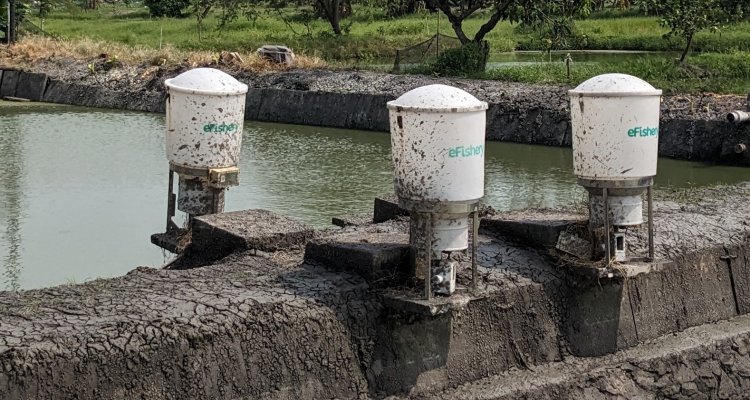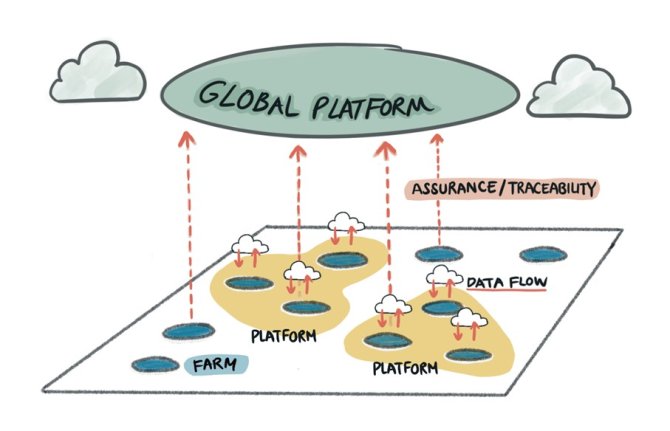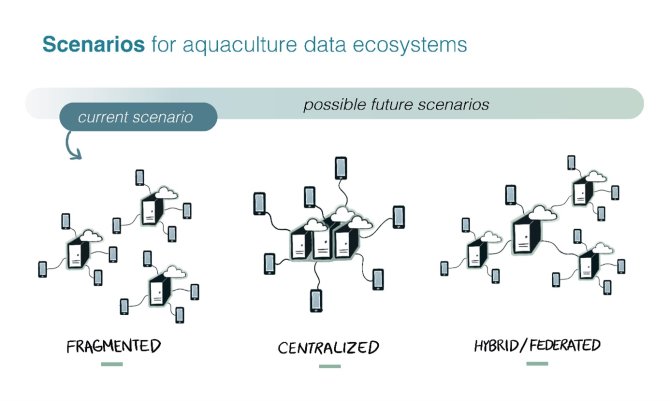
Project
Digital data for sustainable aquaculture
Digital technologies are increasingly used in aquaculture to collect ever larger amounts of data relevant for improving the social and environmental sustainability of the sector. Realizing the potential role of data driven aquaculture sustainability is, however, not inevitable. While there is an ever growing range of data sources, the connections between the systems and owners of this data remains highly fragmented. This project contributes to the design of an aquaculture data ecosystem that can contribute to the sustainability of the sector.
Can digital technologies and data make aquaculture more sustainable?
Digital technologies are increasingly used in aquaculture to collect ever larger amounts of data that are relevant for not only improving processes of production, but the wider social and environmental sustainability of the sector. Near-field and remote sensors are being employed to collect data on ambient production conditions, longer term environmental change, as well as trade and traceability.
But while there is considerable attention to creating these data flows, less attention has been given to the organisation or governance of these data flows to ensure they impact on social and environmental sustainability. Realising the potential role of data driven aquaculture development is, as such, not inevitable. While there is an ever growing range of data sources, the connections between the systems and owners of this data remains highly fragmented. Ownership and transparency of proprietary (on farm) data remains a significant hurdle for the development of digital decision support platforms aimed at the management of public (social and environmental) goods and services.
VIDEO - Can digital data make aquaculture more sustainable? (yuja.com)

There are also fundamentally different rationales by public and private actors that underpin the collection of data; in terms of whether it is collected and used for commercial purposes, for the management of public resources (e.g. water) or social and environmental sustainability goals.
At the same time producers, traders and even consumers engaged with aquaculture and aquaculture products, need specific competences to deliver and act upon this data. Organising a digital Aquaculture 4.0 requires new thinking on how what a global data ecosystem for aquaculture would look like.

This also means addressing questions of ownership and access to data, as well as the challenges arising from the scale and flow of multiple data sources. The project aims to further reflect on these (and potentially other) pathways and the questions that they raise.